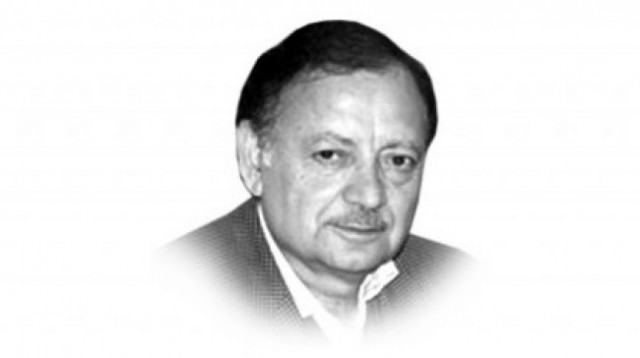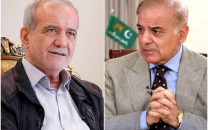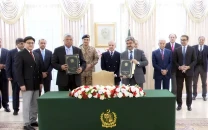In the eye of the storm

The military took a back seat, the formidable PML-N was a partner of the PPP and the MQM was firmly in the fold. Musharraf struggled but failed to survive as no Bonaparte does in democracy. The second year was turbulent. It started with the Punjab crisis after Shahbaz Sharif was disqualified by the Supreme Court under Chief Justice Dogar.
The Sharifs took to the streets not to restore Shahbaz – that would have been considered self-serving – but to restore Justice Iftikhar Chaudhry. The PML-N resuscitated the dwindling lawyers’ movement that was losing steam at that time. Shahbaz returned to office, and Chaudhry followed soon. This crisis almost destabilised the PPP government. Musharraf had faced street agitation in his eighth year of rule. President Zardari faced it in his second. Nawaz Sharif won high moral ground on the judges’ issue, with a possible fallout in electoral terms.
The ill-fated project ended up hurting everybody. The second year of the PPP rule was marked by a crisis of governance. Rampant inflation, short supply of food and prolonged electricity outages shook public confidence. No new labour, education or health policies have been forthcoming. While the economic aspect ran into difficulties, the political dimension showed promise. The government showed exceptional sensitivity to Baloch nationalist feelings which had been on the boil under Musharraf.
Building on previous parliamentary reports and fresh parleys with the elected leadership of that province, the Zardari-Gilani duo made a historic breakthrough, even as the real challenge lay in implementation of the package. Another major political achievement related to the National Finance Commission Award. This strengthened the federation by meeting the demands of the aggrieved federating units to some extent. Punjab’s share in the divisible pool was brought down to 51.74 per cent, while the share of Balochistan shot up from 5.38 to 9.09 per cent.
The 18th amendment remains the most comprehensive piece of constitutional reform ever passed by consensus after 1973. In a country where amendments were passed either on the strength of a brute majority in the parliament or by military dictators, the 18th amendment represented the will of political parties sitting on the Parliamentary Committee for Constitutional Reform. In the politically divided society of Pakistan, nothing sells well. These political and constitutional achievements led to controversy at every step.
The Baloch nationalists felt that the package gave too little too late. The NFC Award was criticised by pro-establishment elements for what they considered as weakening the centre. The amendment was fiercely opposed by a section of the lawyer’s community concerning the make-up of the Judicial Commission, followed by several court cases. The issue of renaming NWFP as Pakhtunkhwa created a furore, first in the party forums and later out in the street, involving tragic loss of human life.
One finds in Punjab and the Hazara division of Khyber-Pakhtunkhwa strong resentment against a move understood to be a sell-out to Pakhtun nationalists. At the other end, the PPP has earned credit among the Baloch, Pathan and Sindhi leadership for being sensitive to the grievances of smaller provinces. Half-way through its tenure, the government faces pressure from black coats, white robes and khakis in general. Diplomacy has been on an even keel. Politicians are not ready for a showdown. But electricity shortage can spoil the game.



















COMMENTS
Comments are moderated and generally will be posted if they are on-topic and not abusive.
For more information, please see our Comments FAQ